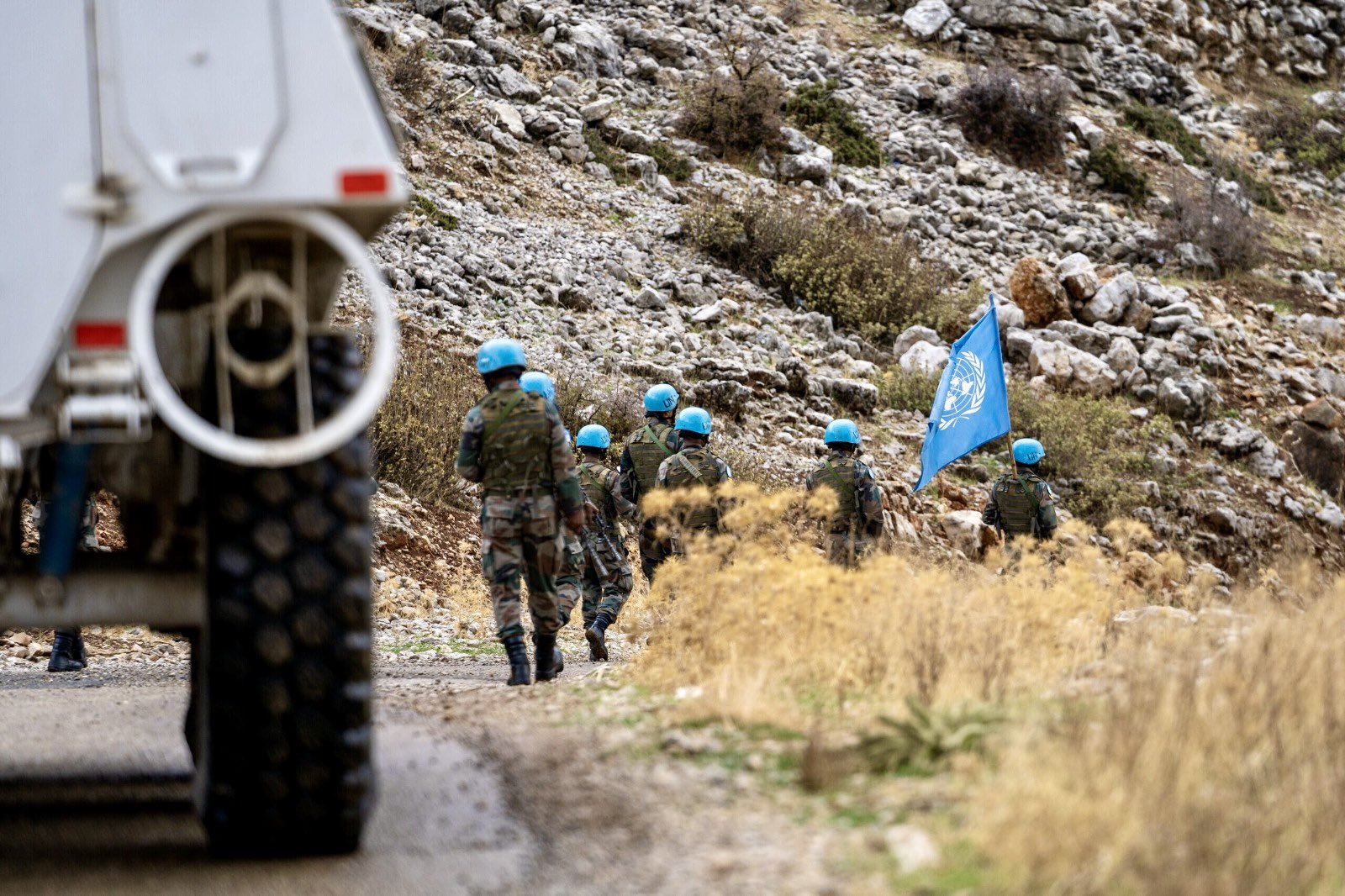Since October 8, Israel has killed at least 2,229 people and injured 10,380 others in Lebanon while displacing more than a million people, according to updated figures by Lebanese authorities.
Qatar has “strongly” condemned Israel’s attack on the United Nations Interim Force in Lebanon (UNIFIL) on Friday, where two personnel were injured amid intensifying Israeli attacks on the country.
In a statement on Friday evening, the Qatari foreign ministry said the assault marked “a flagrant violation of the provisions of international humanitarian law and Security Council Resolution No. 1,701”.
The attack was just 48 hours after a previous one that targeted the UNIFIL, which began its mission in 1978 following the Israeli invasion. The force currently includes some 10,000 personnel from more than 50 countries—including Italy, France, Malaysia, Indonesia and India among others.
Two Indonesian personnel were injured during Thursday’s attack, the country’s foreign ministry confirmed earlier.
Qatar, also a central mediator between Israel and Hamas, stressed the need for “an immediate and independent international investigation to uncover the circumstances of this attack”.
The Gulf state also called for “decisive measures” by the international community “to compel the Israeli occupation to immediately stop its aggressive attacks and repeated violations of international law”.
In remarks to Doha’s state news agency (QNA), Lolwah Al Khater, Qatar’s Minister of State for International Cooperation, underscored the need for a “firm” international stance to halt Israel’s repeated violations.
The Qatari official was in Lebanon earlier this week to deliver vital aid to the country as plumes of smoke from Israeli bombardments emerged in the capital, Beirut.
“She warned that leniency in addressing these continuous Israeli aggressions would further escalate tensions in the region and undermine global efforts to de-escalate the situation,” QNA reported, citing Al Khater.
The Qatari diplomat reaffirmed her country’s support to Lebanon, noting it “will spare no effort in standing by the brothers in Lebanon in confronting the repercussions of Israeli aggression.”
Friday’s attack on UNIFIL was reported near an observation tower at its Naqoura headquarters, where Israel carried out two explosions.
“This is a serious development, and UNIFIL reiterates that the safety and security of UN personnel and property must be guaranteed and that the inviolability of UN premises must be respected at all times,” the UN entity said in a statement.
Lebanon’s caretaker Prime Minister Najib Mikati condemned the attack, which marked the latest such Israeli escalation in Lebanon.
The situation in Lebanon came following more than a year of cross-border airstrikes between Israel and Hezbollah, on the backdrop of Israel’s war in the Gaza Strip.
This followed major escalatory measures by Israel, targeting civilians and their residences while also assassinating Hezbollah’s former Secretary-General Hassan Nasrallah on September 27 in Beirut.
Since October 8, Israel has killed at least 2,229 people and injured 10,380 others in Lebanon while displacing more than a million people, according to updated figures by Lebanese authorities.
In the Gaza Strip, Israel has killed more than 42,000 people while causing a dire humanitarian catastrophe under a complete blockade on the territory.
The total death toll is also believed to be an undercount of the actual figure as thousands have remained missing under the rubble.
International reaction
The brutal attack on UNIFIL was met with global condemnations and denunciations, including by Western countries.
UN Secretary-General Antonio Guterres said that it was “very clear that this incident is intolerable and cannot be repeated”.
“Peacekeepers must be protected by all parties of the conflict, and what has happened is obviously condemnable,” he said.
French President Emmanuel Macron condemned the “deliberate” attack as the foreign ministry summoned the Israeli ambassador to discuss the targeting of UN bases in Lebanon.
This came a week after Macron called for a halt on the sales of arms to Israel that are used in the Gaza Strip.
U.S. President Joe Biden told reporters he was “absolutely” asking Israel to stop attacking UNIFIL.
Secretary of State Antony Blinken also held two separate phone calls with Lebanon’s Speaker of Parliament Nabih Berri and Mikati. In both calls, Blinken voiced Washington’s “commitment to achieve a durable diplomatic resolution”.
France, Italy and Spain also issued a joint statement condemning the attack.
“We recall that all peacekeepers must be protected and reiterate our praise for the continued and indispensable commitment of UNIFIL troops/ personnel in this very challenging context,” the statement read.
The three countries added that they “count on Israel’s commitment to the security of UN and bilateral peacekeeping missions in Lebanon” while calling for an immediate ceasefire.
Türkiye also joined global condemnations, with its foreign ministry releasing a statement calling out Israel’s “massacres against civilians in Gaza, the West Bank and Lebanon”.
“Israel’s attack on UN forces, following its massacres against civilians in Gaza, the West Bank and Lebanon is a manifestation of its perception that its crimes go unpunished. The international community is obligated to ensure that Israel abides by international law,” it said.
Ireland’s foreign minister Micheal Martin separately described the attack as a “shocking” and “unacceptable” move.
“The International community now needs to collectively engage with Israel, put pressure on Israel to desist in this activity, to stop it. To ensure that UN peacekeepers are not put in harm’s way,” he said.
Meanwhile, Indonesia’s Foreign Minister Minister Retno Marsudi stressed that “deliberate attacks on peacekeepers are serious violations of international humanitarian law”.
Jordan’s Foreign Minister Ayman Safadi called out Israeli Prime Minister Benjamin Netanyahu and “his radical extremist ministers”.
“They would not have been able to launch all these aggressions, including against UNIFIL units, had it not been for the impunity with which the International community continues to provide them, and the weapons that many countries are still sending to them,” he said.







